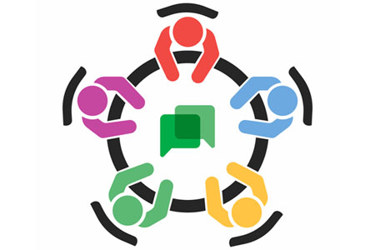Inside The ISCT Global Regulators Summit 2023

By Erin Harris, Editor-In-Chief, Cell & Gene
Follow Me On Twitter @ErinHarris_1

The ISCT Global Regulators Summit occurred in Paris on May 30, 2023, and brought together representatives of international regulatory agencies and government organizations to jointly address and better understand the global issue of the use of unproven cell and gene products. By convening regulators from all major government agencies in North America, Europe, Asia, Australia and South and Central America, the objective was to facilitate knowledge sharing, discussion, and connections with like-minded agencies to help pave the path forward to protect patients from the use of unproven cell and gene products and the integrity of this fast-growing industry.
Immediately following the Summit, I attended a post-event press conference to learn the key highlights of the proceedings. The press conference featured Bambi Grilley, ISCT Chief Regulatory Officer; Massimo Dominici, ISCT past-President and chair of the inaugural presidential Taskforce on unproven cellular therapies; and Miguel Forte, ISCT President-elect. Each panelist provided their perspectives on the high-level discussions, areas of consensus and debate, and opportunities moving forward.
Bambi began the press conference discussion by reiterating ISCT’s roots in cell and gene therapy and its long-standing relationship with regulatory affairs. She stated the purpose of this Summit, the first ever of its kind, featuring world-wide regulators, was to openly discuss the topic of unlicensed CGT products. Indeed, 14 regulatory leaders from FDA, EMA, as well as regulatory representatives from Israel, Japan, Australia, India, Hong Kong, and Korea participated.
Massimo explained that unlicensed CGT products cause many problems for patients – financial harm, the potential for physical harm, as well as two stages of anger, including the anger of hope, which is the extreme attachment between providers, as well as the anger of despair, which leads to resentment. “When outcomes aren’t what we want, and when we talk about unlicensed therapies, people become disenfranchised from healthcare and mistrust the medical community. What we saw today in this room was real engagement and real dialogue among regulators to overcome these challenges,” Massimo said. Miguel followed up by stating that while there were no conclusions per se, certain themes, including education and communication, were central to the discussions. Regulators agreed that better education is needed for patients and people with chronic conditions; better education of their physicians is needed; and registries that track patients must be used. Miguel explained that regulators understand and are aware of the various problems, and he stressed that clear, on-going communication is part of the education.
Bambi explained that direct-to-consumer advertising can be a major problem regarding unlicensed CGTs. “When you watch an advertisement on TV for an approved product, the FDA has approved what can be stated about the product. With direct-to-consumer advertising, the message can be off point. You don’t have to look far into social media to determine if the messaging is off. This can't be handled at a regulatory level. Hospital groups, the Federal Trade Commission, etc. need to be part of the equation. “Everything needs to be monitored,” said Miguel. “Regulators discussed the definition of classification and what is approved and what is NOT approved. Then they need to communicate. ISCT represents a role that supports and compliments that communication.”
“When we started this project 10 years ago, there was a tsunami of clinics selling products that are harmful to patients,” said Massimo. “First, regulators had to understand how clinics operate. This was followed by greater oversight and more communications and counteracting the way clinics have been operating. This was enough to take care of that tsunami. The situation is steady because the way they are operating has reached a level of maturity. We need to ride that wave to counteract the unproven therapy.”
Future Global Regulators Summits
Today’s team of panelists stated that future Summits and meetings should be easier to coordinate, because today’s event went very well. Geographical diversity provided for a very informative and lively discussion. As such, next year’s event in Vancouver should be just as successful. The expectation for next year’s event is that regulators should expect the same level of confidence in sharing points of view. The highest level of regulatory representatives attended today’s event and having them in the same room provided the opportunity to speak candidly and to share ideas.
